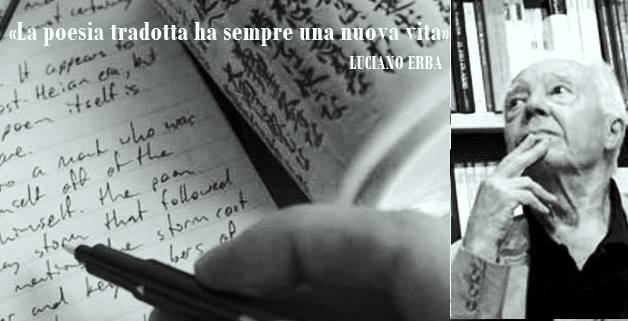|
Lo svagato Luciano Erba Ma quando arrivano? e come? . |
Absent-minded Luciano Erba But when are they coming? and how? . Translation ©Matilda Colarossi |
Luciano Erba was a poet, literary critic, translator and university professor. He was a member of the so-called “Linea Lombarda” movement, he debuted as a poet in 1951 with the collection Linea K.
During his career Erba was the recipient of numerous award, including the Viareggio Prize for Poetry in 1980 for Il prato piu verde and Il nastro di Moebius, the Bagutta Prize in 1988 for II tranviere metafisico, the PEN Award in 1995 for L’ipotesi circense.
He collaborated with various publications, including Itinerari, La Fiera Letteraria,Il Verri and The Western Review, and was active as a translator from French and English languages.
Among his works we find: Linea K, 1951, (the letter K is missing in the Italian alphabet, and this takes us to his idea of a marginal reality, not evident and yet necessary); Il bel paese, 1955, which alludes, ironically to a lost Lombardy; Il prete di Ratanà, 1959, a character that would become emblematic; and Il male minore, which, in 1969, summarises the first phase of his poetic production.
In the preface of his collection Il male minore, Milan, 1955, Alfonos Gatto wrote: “If we were to speak of the result of this poetry, so original in its “luxury of the unusual”, we would speak not so much of the author’s undeniable talent, but of the intimate, surprising memory he has of his lack of memory.”
In the picture, the words by Luciano Erba state: “Translated poetry always has a new life.”
Lo svagato is from the collection Il male minore, Milan, Mondadori.

This work is licensed under a Creative Commons Attribution-NonCommercial-NoDerivatives 4.0 International License.

Reblogged this on Paolo Ottaviani's Weblog.
LikeLike